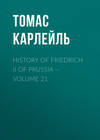Czytaj książkę: «History of Friedrich II of Prussia - Volume 14», strona 2
SETTLES THE SILESIAN BOUNDARIES, THE SILESIAN ARRANGEMENTS; WITH MANIFEST PROFIT TO SILESIA AND HIMSELF.
In regard to the Marches, Herr Nussler, as natural, was again the person employed. Nussler, shifty soul, wide-awake at all times, has already seen this Country; "noticed the Pass into Glatz with its block-house, and perceived that his Majesty would want it." From September 22d to December 12th, 1742, the actual Operation went on; ratified, completely set at rest, 16th January following. [Busching, Beitrage,? Nussler: and Busching's Magazin, b. x. (Halle, 1776); where, pp. 475-538, is a "GESCHICHTE DER &c. SHLESISCHEN GRANZSCHEIDUNG IM JAHR 1742," in great amplitude and authenticity.] Nussler serves on three thalers (nine shillings) a day. The Austrian Head-Commissioner has 5 pounds (thirty thalers) a day; but he is an elderly fat gentleman, pursy, scant of breath; cannot stand the rapid galloping about, and thousand-fold inspecting and detailing; leaves it all to Nussler; who goes like the wind. Thus, for example, Nussler dictates, at evening from his saddle, the mutual Protocol of the day's doings; Old Pursy sitting by, impatient for supper, and making no criticisms. Then at night, Nussler privately mounts again; privately, by moonlight, gallops over the ground they are to deal with next day, and takes notice of everything. No wonder the boundary-pillars, set up in such manner, which stand to this day, bear marks that Prussia here and there has had fair play!—Poor Nussler has no fixed appointment yet, except one of about 100 pounds a year: in all my travels I have seen no man of equal faculty at lower wages. Nor did he ever get any signal promotion, or the least exuberance of wages, this poor Nussler;—unless it be that he got trained to perfect veracity of workmanship, and to be a man without dry-rot in the soul of him; which indeed is incalculable wages. Income of 100 pounds a year, and no dry-rot in the soul of you anywhere; income of 100,000 pounds a year, and nothing but dry and wet rot in the soul of you (ugly appetites unveracities, blusterous conceits,—and probably, as symbol of all things, a pot-belly to your poor body itself): Oh, my friends!
In settling the Spiritual or internal Catholic-Protestant limits of Silesia, Friedrich did also a workmanlike thing. Perfect fairness between Protestant and Catholic; to that he is bound, and never needed binding. But it is withal his intention to be King in Catholic Silesia; and that no Holy Father, or other extraneous individual, shall intrude with inconvenient pretensions there. He accordingly nominates the now Bishop of Neisse and natural Primate of Silesia,—Cardinal von Sinzendorf, who has made submission for any late Austrian peccadilloes, and thoroughly reconciled himself,—nominates Sinzendorf "Vicar-General" of the Country; who is to relieve the Pope of Silesian trouble, and be himself Quasi-Supreme of the Catholic Church there. "No offence, Holy Papa of Christian Mankind! Your holy religion is, and shall be, intact in these parts; but the palliums, bulls and other holy wares and interferences are not needed here. On that footing, be pleased to rest content."
The Holy Father shrieked his loudest (which is now a quite calculable loudness, nothing like so loud as it once was); declared he would "himself join the Army of Martyrs sooner;" and summoned Sinzendorf to Rome: "What kind of HINGE are you, CARDINALIS of the Gates of"—Husht! Shrieked his loudest, we say; but, as nobody minded it, and as Sinzendorf would not come, had to let the matter take its course. [Adelung, iii. A. 197-200.] And, gradually noticing what correct observance of essentials there was, he even came quite round, into a high state of satisfaction with this Heretic King, in the course of a few years. Friedrich and the Pope were very polite to each other thenceforth; always ready to do little mutual favors. And it is to be remarked, Friedrich's management of his Clergy, Protestant and Catholic, was always excellent; true, in a considerable degree, to the real law of things; gentle, but strict, and without shadow of hypocrisy,—in which last fine particular he is singularly unique among Modern Sovereigns.
He recognizes honestly the uses of Religion, though he himself has little; takes a good deal of pains with his Preaching Clergy, from the Army-Chaplain upwards,—will suggest texts to them, with scheme of sermon, on occasion;—is always anxious to have, as Clerical Functionary, the right man in the important place; and for the rest, expects to be obeyed by them, as by his Sergeants and Corporals. Indeed, the reverend men feel themselves to be a body of Spiritual Sergeants, Corporals and Captains; to whom obedience is the rule, and discontent a thing not to be indulged in by any means. And it is worth noticing, how well they seem to thrive in this completely submissive posture; how much real Christian worth is traceable in their labors and them; and what a fund of piety and religious faith, in rugged effectual form, exists in the Armies and Populations of such a King. ["In 1780, at Berlin, the population being 140,000, there are of ECCLESIASTIC kind only 140; that is 1 to the 1,000;—at Munchen there are thirty times as many in proportion" (Mirabeau, Monarchie Prussienne, viii. 342; quoting NICOLAI).]...
By degrees the Munchows and Official Persons intrusted with Silesia got it wrought in all respects, financial, administrative, judicial, secular and spiritual, into the Prussian model: a long tough job; but one that proved well worth doing. [In Preuss (i. 197-200), the various steps (from 1740 to 1806).] In this state, counts one authority, it was worth to Prussia "about six times what it had been to Austria;"—from some other forgotten source, I have seen the computation "eight times." In money revenue, at the end of Friedrich's reign, it is a little more than twice; the "eight times" and the "six times," which are but loose multiples, refer, I suppose, to population, trade, increase of national wealth, of new regiments yielded by new cantons, and the like. [Westphalen, in Feldzuge des Herzogs Ferdinand (printed, Berlin, 1859, written 100 years before by that well-informed person), i. 65, says in the rough "six times:" Preuss, iv. 292, gives, very indistinctly, the ciphers of Revenue, in 1740 and SOME later Year: according to Friedrich himself (Oeuvres, ii. 102), the Silesian Revenue at first was "3,600,000 thalers" (540,000 pounds, little more than Half a Million); Population, a Million-and-Half.]
Six or eight times as useful to Prussia: and to the Inhabitants what multiple of usefulness shall we give? To be governed on principles fair and rational, that is to say, conformable to Nature's appointment in that respect; and to be governed on principles which contradict the very rules of Cocker, and with impious disbelief of the very Multiplication Table: the one is a perpetual Gospel of Cosmos and Heaven to every unit of the Population; the other a Gospel of Chaos and Beelzebub to every unit of them: there is no multiple to be found in Arithmetic which will express that!—Certain of these advantages, in the new Government, are seen at once; others, the still more valuable, do not appear, except gradually and after many days and years. With the one and the other, Schlesien appears to have been tolerably content. From that Year 1742 to this, Schlesien has expressed by word and symptom nothing but thankfulness for the Transfer it underwent; and there is, for the last Hundred Years, no part of the Prussian Dominion more loyal to the Hohenzollerns (who are the Authors of Prussia, without whom Prussia had never been), than this their latest acquisition, when once it too got moulded into their own image. [Preuss, i. 193, and ib. 200 (Note from Klein, a Silesian Jurist): "Favor not merit formerly;" "Magistracies a regular branch of TRADE;"—"highway robbers on a strangely familiar footing with the old Breslau magistrates;" &c. &c.]
OPENING OF THE OPERA-HOUSE AT BERLIN.
... December 7th, this Winter, Carnival being come or just coming, Friedrich opens his New Opera-House, for behoof of the cultivated Berlin classes; a fine Edifice, which had been diligently built by Knobelsdorf, while those Silesian battlings went on. "One of the largest and finest Opera-houses in the whole world; like a sumptuous Palace rather. Stands free on all sides, space for 1,000 Coaches round it; Five great Entrances, five persons can walk abreast through each; and inside—you should see, you should hear! Boxes more like rooms or boudoirs, free view and perfect hearing of the stage from every point: air pure and free everywhere; water aloft, not only for theatrical cascades, but to drown out any fire or risk of fire." [Seyfarth, i. 234; Nicolai, Beschreibung von Berlin, i. 169.] This is Seyfarth's account, still capable of confirmation by travelling readers of a musical turn. I have seen Operas with much more brilliancy of gas and gilding; but none nearly so convenient to the human mind and sense; or where the audience (not now a gratis one) attended to the music in so meritorious a way.
"Perhaps it will attract moneyed strangers to frequent our Capital?"—some guess, that was Friedrich's thought. "At all events, it is a handsome piece of equipage, for a musical King and People; not to be neglected in the circumstances. Thalia, in general,—let us not neglect Thalia, in such a dearth of worshipable objects." Nor did he neglect Thalia. The trouble Friedrich took with his Opera, with his Dancing-Apparatus, French Comedy, and the rest of that affair, was very great. Much greater, surely, than this Editor would have thought of taking; though, on reflection, he does not presume to blame. The world is dreadfully scant of worshipable objects: and if your Theatre is your own, to sweep away intrusive nonsense continually from the gates of it? Friedrich's Opera costs him heavy sums (surely I once knew approximately what, but the sibylline leaf is gone again upon the winds!)—and he admits gratis a select public, and that only. [Preuss, i. 277; and Preuss, Buch fur Jedermann, i. 100.] "This Winter, 1742-43, was unusually magnificent at Court: balls, WIRTHSCHAFTEN [kind of MIMIC FAIRS], sledge-parties, masquerades, and theatricals of all sorts;—and once even, December 2d, the new Golden Table-Service [cost of it 200,000 pounds] was in action, when the two Queens [Queen Regnant and Queen Mother] dined with his Majesty."
FRIEDRICH TAKES THE WATERS AT AACHEN, WHERE VOLTAIRE COMES TO SEE HIM.
Months before that of the Opera-House or those Silesian settlements, Friedrich, in the end of August, what is the first thing visible in his Domestic History, makes a visit, for health's sake, to Aachen (Aix-la-Chapelle so called), with a view to the waters there. Intends to try for a little improvement in health, as the basis of ulterior things. Health has naturally suffered a little in these War-hardships; and the Doctors recommend Aix. After Wesel, and the Westphalian Inspections, Friedrich, accordingly, proceeds to Aix; and for about a fortnight (23th August-9th September) drinks the waters in that old resting-place of Charlemagne;—particulars not given in the Books; except that "he lodged with Baege" (if any mortal now knew Baege), and did an Audience or so to select persons now unknown. He is not entirely incognito, but is without royal state; the "guard of twenty men, the escort of 160 men," being no men of his, but presumably mere Town-guard of Aix coming in an honorary way. Aix is proud to see him; he himself is intent on the waters here at old Aix:—
My friend, this was Charlemagne's high place; and his dust lies here, these thousand years last past. And there used to soar "a very large Gilt Eagle," ten feet wide or so, aloft on the Cathedral-steeple there; Eagle turned southward when the Kaiser was in Frankenland, eastward when he was in Teutsch or Teuton-land; in fact, pointing out the Kaiser's whereabouts to loyal mankind. [Kohler, Reichs-Historie.] Eagle which shines on me as a human fact; luminously gilt, through the dark Dryasdustic Ages, gone all spectral under Dryasdust's sad handling. Friedrich knows farther, that for many centuries after, the "Reich's INSIGNIA (REICHS-KLEINODIEN)" used to be here,—though Maria Theresa has them now, and will not give them up. The whole of which points are indifferent to him. The practical, not the sentimental, is Friedrich's interest;—not to say that WERTER and the sentimental were not yet born into our afflicted Earth. A King thoroughly practical;—yet an exquisite player on the flute withal, as we often notice; whose adagio could draw tears from you. For in himself, too, there were floods of tears (as when his Mother died); and he has been heard saying, not bragging but lamenting, what was truly the fact, that "he had more feeling than other men." But it was honest human feeling always; and was repressed, where not irrepressible;—as it behooved to be.
Friedrich's suite was not considerable, says the French spy at Aix on this occasion; pomp of Entrance,—a thing to be mute upon! "Came driving in with the common post-horses of the country; and such a set of carriages as your Lordship, intent on the sublime, has no idea of." [Spy-Letter, in Campagnes des Trois Marechaux, i. 222.] Rumor was, His Britannic Majesty was coming (also on pretext of the waters) to confer with him; other rumor is, If King George came in at one gate, King Friedrich would go out at the other. A dubious Friedrich, to the French spy, at this moment; nothing like so admirable as he once was!—
The French emotions (of which we say little), on Friedrich's making Peace for himself, had naturally been great. To the French Public it was unexpected, somewhat SUDDEN even to the Court; and, sure enough, it was of perilous importance in the circumstances. Few days ago, Broglio (by order given him) "could not spare a man," for the Common Cause;—and now the Common Cause has become entirely the Broglio one, and Broglio will have the full use of all his men! "Defection [plainly treasonous to your Liege Lord and Nation]! horrible to think of!" cried the French Public; the Court outwardly taking a lofty tragic-elegiac tone, with some air of hope that his Prussian Majesty would perhaps come round again, to the side of his afflicted France! Of which, except in the way of helping France and the other afflicted parties to a just Peace if he could, his Prussian Majesty had small thought at this time.
More affecting to Friedrich were the natural terrors of the poor Kaiser on this event. The Kaiser has already had his Messenger at Berlin, in consequence of it; with urgent inquiries, entreaties;—an expert Messenger, who knows Berlin well. So other than our old friend, the Ordnance-Master Seckendorf, now titular Feldmarschall,—whom one is more surprised than delighted to meet again! Being out with Austria (clamoring for great sums of "arrears," which they will not pay), he has been hanging about this new Kaiser, ever since Election-time; and is again getting into employment, Diplomatic, Strategic, for some years,—though we hope mostly to ignore him and it. Friedrich's own feeling at sight of him,—ask not about it, more than if there had been none! Friedrich gave him "a distinguished reception;" Friedrich's answer sent by him to the Kaiser was all kindness; emphatic assurance, "That, not 'hostility' by any means, that loyalty, friendship, and aid wherever possible within the limits, should always be his rule towards the now Kaiser, lawful Head of the Reich, in difficult circumstances." ["Audience, 30th July" (Adelung, iii. A, 217).] Which was some consolation to the poor man,—stript of his old revenues, old Bavarian Dominions, and unprovided with new; this sublime Headship of the Reich bring moneyless; and one's new "Kingdom of Bohemia" hanging in so uncertain a state, with nothing but a Pharsalia-Sahay to show for itself!—
Among Friedrich's "inconsiderable suite," at Aachen, was Prince Henri (his youngest Brother, age now sixteen, a small, sensitive, shivering creature, but of uncommon parts); and another young man, Prince Ferdinand of Brunswick, his Wife's youngest Brother; a soldier, as all the Brothers are; soldier in Friedrich's Army, this one; in whose fine inarticulate eupeptic character are excellent dispositions and capacities discernible. Ferdinand goes generally with the King; much about him in these years. All the Brothers follow soldiering; it is the one trade of German Princes. When at home, Friedrich is still occasionally with his Queen; who lives at Schonhausen, in the environs of Berlin, but goes with him to Charlottenburg, to old Reinsberg; and has her share of galas in his company, with the Queen Mother and cognate Highnesses.
Another small fact, still more memorable at present, is, That Voltaire now made him a Third Visit,—privately on Fleury's instance, as is evident this time. Of which Voltaire Visit readers shall know duly, by and by, what little is knowable. But, alas, there is first an immense arrear of War-matters to bring up; to which, still more than to Voltaire, the afflicted reader must address himself, if he would understand at all what Friedrich's Environment, or circumambient Life-element now was, and how Friedrich, well or ill, comported himself in the same. Brevity, this Editor knows, is extremely desirable, and that the scissors should be merciless on those sad Paper-Heaps, intolerable to the modern mind; but, unless the modern mind chance to prefer ease and darkness, what can an Editor do!
Chapter II.—AUSTRIAN AFFAIRS ARE ON THE MOUNTING HAND.
Austrian affairs are not now in their nadir-point; a long while now since they passed that. Austria, to all appearance dead, started up, and began to strike for herself, with some success, the instant Walpole's SOUP-ROYAL (that first 200,000 pounds, followed since by abundance more) got to her lips. Touched her poor pale lips; and went tingling through her, like life and fiery elasticity, out of death by inanition! Cardinal moment, which History knows, but can never date, except vaguely, some time in 1741; among the last acts of judicious Walpole.
Austria, thanks to its own Khevenhullers and its English guineas, was already rising in various quarters: and now when the Prussian Affair is settled, Austria springs up everywhere like an elastic body with the pressure taken from it; mounts steadily, month after month, in practical success, and in height of humor in a still higher ratio. And in the course of the next Two Years rises to a great height indeed. Here—snatched, who knows with what difficulty, from that shoreless bottomless slough of an Austrian-Succession War, deservedly forgotten, and avoided by extant mankind—are some of the more essential phenomena, which Friedrich had to witness in those months. To witness, to scan with such intense interest,—rightly, at his peril;—and to interpret as actual "Omens" for him, as monitions of a most indisputable nature! No Haruspex, I suppose, with or without "white beard, and long staff for cutting the Heavenly Vault into compartments from the zenith downwards," could, in Etruria or elsewhere, "watch the flight of birds, now into this compartment, now into that," with stricter scrutiny than, on the new terms, did this young King from his Potsdam Observatory.
WAR-PHENOMENA IN THE WESTERN PARTS: KING GEORGE TRIES, A SECOND TIME, TO DRAW HIS SWORD; TUGS AT IT VIOLENTLY, FOR SEVEN MONTHS (February-October, 1742).
"The first phenomenon, cheering to Austria, is that of the Britannic Majesty again clutching sword, with evident intent to draw it on her behalf. [Tindal, xx. 552; Old Newspapers; &c. &c.] Besides his potent soup-royal of Half-Millions annually, the Britannic Majesty has a considerable sword, say 40,000, of British and of subsidized;—sword which costs him a great deal of money to keep by his side; and a great deal of clamor and insolent gibing from the Gazetteer species, because he is forced to keep it strictly in the scabbard hitherto. This Year, we observe, he has determined again to draw it, in the Cause of Human Liberty, whatever follow. From early Spring there were symptoms: Camps on Lexden and other Heaths, much reviewing in Hyde-Park and elsewhere; from all corners a universal marching towards the Kent Coast; the aspects being favorable. 'We can besiege Dunkirk at any rate, cannot we, your High Mightinesses? Dunkirk, which, by all the Treaties in existence, ought to need no besieging; but which, in spite of treatyings innumerable, always does?' The High Mightinesses answer nothing articulate, languidly grumble something in OPTATIVE tone;—'meaning assent,' thinks the sanguine mind. 'Dutch hoistable, after all!' thinks he; 'Dutch will co-operate, if they saw example set!' And, in England, the work of embarking actually begins.
"Britannic Majesty's purpose, and even fixed resolve to this effect, had preceded the Prussian-Austrian Settlement. May 20th, ["9th" by the Old Newspapers; but we always TRANSLATE their o.s.] 'Two regiments of Foot,' first poor instalment of British Troops, had actually landed at Ostend;—news of the Battle of Chotusitz, much more, of the Austrian-Prussian Settlement, or Peace of Breslau, would meet them THERE. But after that latter auspicious event, things start into quick and double-quick time; and the Gazetteers get vocal, almost lyrical: About Howard's regiment, Ponsonby's regiment, all manner of regiments, off to Flanders, for a stroke of work; how 'Ligonier's Dragoons [a set of wild swearing fellows, whom Guildford is happy to be quit of] rode through Bromley with their kettle-drums going, and are this day at Gravesend to take ship;'"—or to give one other, more specific example:
"Yesterday [3d July, 1742] General Campbell's Regiment of Scotch Greys arrived in the Borough of Southwark, on their march to Dover, where they are to embark for Flanders. They are fine hardy fellows, that want no seasoning; and make an appearance agreeable to all but the innkeepers,"—who have such billeting to do, of late. [Daily Post, June 23d (o.s.), 1742.] "Grey Dragoons," or Royal Scots-Greys, is the title of this fine Regiment; and their Colonel is Lieutenant-General John Campbell, afterwards Duke of Argyle (fourth Duke), Cousin of the great second Duke of Argyle that now is. [Douglas, Scotch Peerage (Edinburgh, 1764), p. 44.] Visibly billeting there, in Southwark, with such intentions:—and, by accident, this Editor knows Twenty of these fine fellows! Twenty or so, who had gone in one batch as Greys; sons of good Annandale yeomen, otherwise without a career open: some Two of whom did get back, and lived to be old men; the rumor of whom, and of their unheard-of adventures, was still lingering in the air, when this Editor began existence. Pardon, O reader!—
"But, all through those hot days, it is a universal drumming, kettle-drumming, coast-ward; preparation of transports at Gravesend, at the top of one's velocity. 'All the coopers in London are in requisition for water-casks, so that our very brewers have to pause astonished for want of tubs.' There is pumping in of water day and night, Sunday not excepted, then throwing of it out again [owing to new circumstances]: 250 saddle-horses, and 100 sumpter ditto, for his Majesty's own use,—these need a deal of water, never to speak of Ligonier and the Greys. 'For the honor of our Country, his Majesty will make a grander appearance this Campaign than any of his Predecessors ever did; and as to the magnificence of his equipage,'—besides the 350 quadrupeds, 'there are above 100 rich portmanteaus getting ready with all expedition.' [Daily Post, September 13th (I.E. 26th).] The Fat Boy too [Royal Highness Duke of Cumberland, one should say] is to go; a most brave-hearted, flaxen-florid, plump young creature; hopeful Son of Mars, could he once get experience, which, alas, he never could, though trying it for five-and-twenty years to come, under huge expense to this Nation! There are to be 16,000 troops, perhaps more; '1,000 sandbags' (empty as yet); demolition of Dunkirk the thing aimed at." If only the Dutch prove hoistable!—
"And so, from May on to September, it noisily proceeds, at multiplex rates? and often with more haste than speed: and in such five months (seven, strictly counted) of clangorous movement and dead-lift exertion, there were veritably got across, of Horse and Foot with their equipments, the surprising number of '16,334 men.' [Adelung, iii. A, 201.] May 20th it began,—that is, the embarking began; the noise and babble about it, which have been incessant ever since, had begun in February before;—and on September 26th, Ostend, now almost weary of huzzaing over British glory by instalment, had the joy of seeing our final portions of Artillery arrive: Such a Park of Siege-and-Field Artillery," exults the Gazetteer, "as"—as these poor creatures never dreamt of before.
"Magnanimous Lord Stair, already Plenipotentiary to the Dutch, is to be King's General-in-Chief of this fine Enterprise; Carteret, another Lord of some real brilliancy, and perhaps of still weightier metal, is head of the Cabinet; hearty, both of them, for these Anti-French intentions: and the Public cannot but think, Surely something will come of it this time? More especially now that Maillebois, about the middle of August, by a strange turn of fortune, is swept out of the way. Maillebois, lying over in Westphalia with his 30 or 40,000, on 'Check to your King' this year past, had, on sight of these Anti-Dunkirk movements, been ordered to look Dunkirk way, and at length to move thitherward, for protection of Dunkirk. So that Stair, before his Dunkirk business, will have to fight Maillebois; which Stair doubts not may be satisfactorily done. But behold, in August and earlier, come marvellous news from the Prag quarter, tragical to France; and Maillebois is off, at his best speed, in the reverse direction; on a far other errand!"—Of which readers shall soon hear enough.
"Dunkirk, therefore, is now open. With 16,000 British troops, Hanoverians to the like number, and Hessians 6,000, together near 40,000, not to speak of Dutch at all, surely one might manage Dunkirk, if not something still better? It is AFTER Maillebois's departure that these dreadful exertions, coopering of water-casks, pumping all Sunday, go on at Gravesend: 'Swift, oh, be swift, while time is!' And Generalissimo-Plenipotentiary Stair, who has run over beforehand, is ardent enough upon the Dutch; his eloquence fiery and incessant: 'Magnanimous High Mightinesses, was there, will there again be, such a chance? The Cause of Human Liberty may be secured forever! Dunkirk—or what is Dunkirk even? Between us and Paris, there is nothing, now that Maillebois is off on such an errand! Why should not we play Marlborongh again, and teach them a little what Invasion means? It is ourselves alone that can hinder it! Now, I say, or never!'
"Stair was a pupil of Marlborough's; is otherwise a shining kind of man; and has immense things in his eye, at this time. They say, what is not unlikely, he proposed an Interview with Friedrich now at Aachen; would come privately, to 'take the waters' for a day or two,—while Maillebois was on his new errand, and such a crisis had risen. But Friedrich, anxious to be neutral and give no offence, politely waived such honor. Lord Stair was thought to be something of a General, in fact as well as in costume;—and perhaps he was so. And had there been a proper COUNTESS of Stair, or new Sarah Jennings,—to cover gently, by art-magic, the Britannic Majesty and Fat Boy under a tub; and to put Britain, and British Parliament and resources, into Stair's hand for a few years,—who knows what Stair too might have done! A Marlborough in the War Arts,—perhaps still less in the Peace ones, if we knew the great Marlborough,—he could not have been. But there is in him a recognizable flash of magnanimity, of heroic enterprise and purpose; which is highly peculiar in that sordid element. And it can be said of him, as of lightning striking ineffectual on the Bog of Allen or the Stygian Fens, that his strength was never tried."—For the upshot of him we will wait; not very long.
These are fine prospects, if only the Dutch prove hoistable. But these are as nothing to what is passing, and has passed, in the Eastern Parts, in the Bohemian-Bavarian quarter, since we were there. Poor Kaiser Karl, what an outlook for him! His own real Bavaria, much more his imaginary "Upper Austria" and "Conquests on the Donau," after that Segur Adventure, are plunging headlong. As to his once "Kingdom of Bohemia," it has already plunged; nay, the Army of the Oriflamme is itself near plunging, in spite of that Pharsalia of a Sahay! Bavaria itself, we say, is mostly gone to Khevenhuller; Segur with his French on march homeward, and nothing but Bavarians left. The Belleisle-Broglio grand Budweis Expedition is gone totally heels over head; Belleisle and Broglio are getting, step by step, shut up in Prag and besieged there: while Maillebois—Let us try whether, by snatching out here a fragment and there a fragment, with chronological and other appliances, it be not possible to give readers some conceivable notion of what Friedrich was now looking at with such interest!—



















